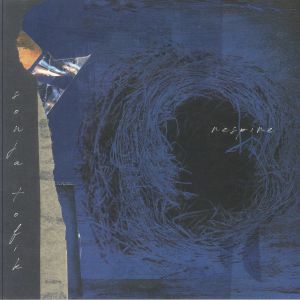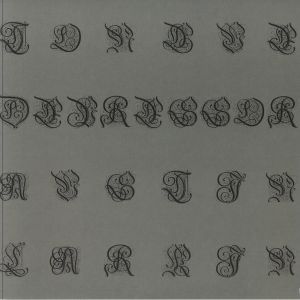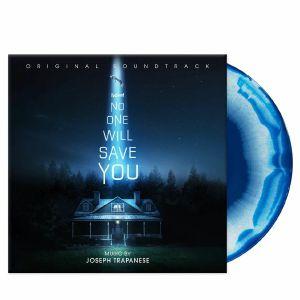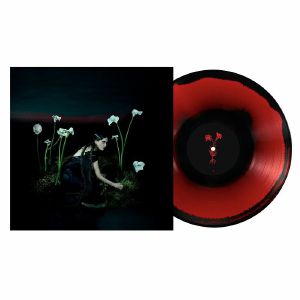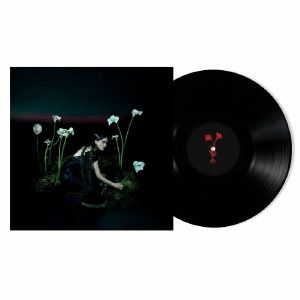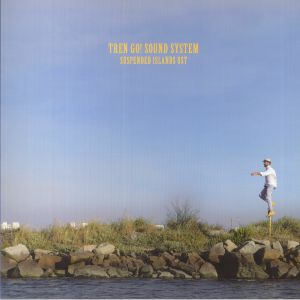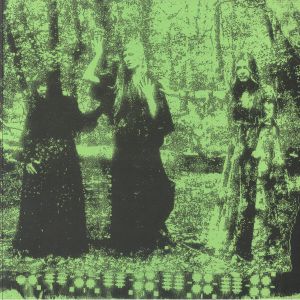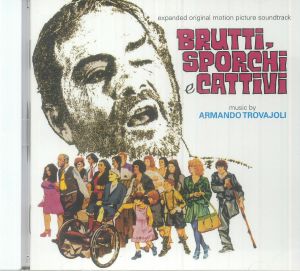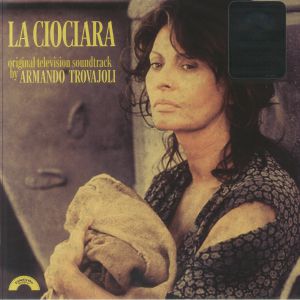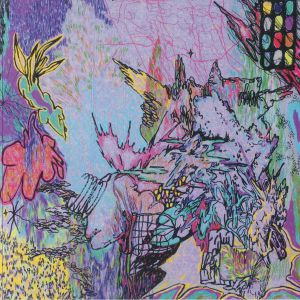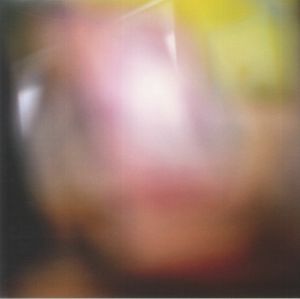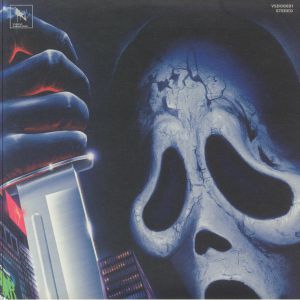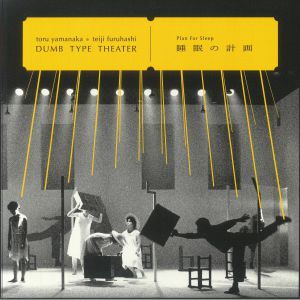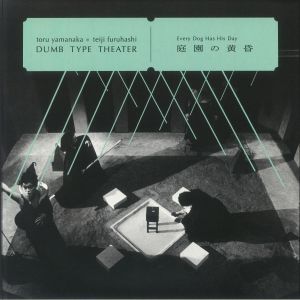Filter
Genre
在庫状況
Featured
リリースタイトル
タグ
Back catalogue:
Juno's full catalogue of
アルバム
in stock $28.50
in stock $26.00
Monogatari No Youni Furusatohatoi (reissue) (LP + booklet with obi-strip)
Cat: PLP 7495. Rel: 11 Dec 24
Review: For the first time on vinyl, P-Vine reissue one of the earliest works by Yellow Magic Orchestra founder and later film composer Ryuichi Sakamoto. Before the fame and notoriety, Sakamoto lent a hand to the avant-garde singer Taeko Tomioka, whose 1976 album he produced, both in the box and out. Tomioka only recorded the one album, and later went on to develop a career as a poet, novelist and literary critic. Few self-proclaimed Sakamoto heads know this, which is what makes this P-Vine reissue so special. Were it not for Sakamoto's touch, Tomioka's animalistic performances would likely not have taken on their extensible quality; Sakamoto's virtuosity was more than enough to rigorously challenge Tomioka, producing less of a debutant's declamation than a mixolydian nightwalk, bringing out the potent harmonic range of whatever the musical equivalent of a tightrope walker is.
… Read more in stock $36.24
in stock $29.60
Bones For Time (gatefold 2xLP with obi-strip)
Cat: WS 010. Rel: 10 Feb 23
in stock $35.14
Landau Bar (clear vinyl LP)
Cat: RSR 051. Rel: 08 Mar 24
in stock $30.16
Review: Laurie Torres is a Canadian musician and composer of Haitian descent and she spent years as a trusted collaborator for artists like Julia Jacklin and Pomme. In 2023, she shifted focus to her own solo work, resulting in her debut album Apres coup. Inspired by contemporary artists such as Tirzah and Valentina Magaletti, the album blends piano, drums, synths and field recordings to create a rich and meditative sound that was recorded at Studio Wild in Quebec. It reflects Torres' journey towards creative freedom and self-expression while exploring themes of introspection, marginalisation and the beauty of imperfection.
… Read morePlayed by: Juno Recommends Broken Beat Nu Jazz
in stock $26.84
Racing The Storm (limited white vinyl LP)
Cat: BELLA 1424V. Rel: 16 Mar 23
in stock $25.44
in stock $26.54
Dreams Waking Thoughts & Incidents (limited 2xLP)
Cat: NOG 007. Rel: 30 Nov 22
in stock $33.18
No One Will Save You (Soundtrack) (gatefold 180 gram "invasion" midnight blue & white light beam swirled vinyl LP)
Cat: WW 199. Rel: 17 May 24
in stock $32.37
A Requiem (limited red corona vinyl LP)
Cat: TPLP 1944LTD2. Rel: 03 Apr 25
Review: Brighton-based Australian vocalist, producer, and multi-instrumentalist Penelope Trappes shares her fifth album, requiescing ten captive ambient soundscapes, all of which share the aim of integrating dreamsand nightmares, grief and personal empowerment. Through the use of carnal, transcendent cello drones, Trappes explores historical and generational traumas in a chilling piece of gothic experimentalism. In a residential prelude, Trappes trapped herself in Scotland, eking remote studio solitude as a cranny in which to unleash personal demons, exploring and transmuting familial chaos and history. Raw and spiritually charged, the album offers a powerful meditation on loss; its threat, its meaning, and the process of coming to terms with it.
… Read more in stock $27.39
Review: Brighton-based Australian vocalist, multi-instrumentalist, and producer Penelope Trappes drops her fifth full length album and invites us on a bare bones, spiritual journey. Making herself incredibly vulnerable in the process, these are the kind of tracks that induce meditative and psychedelic trains of thought, haunting and beautiful, blissful and tense. Cello drones, gothic aesthetics, a king of futurist folk, at least some of the inspiration for which has come from time spent in isolated corners of Scotland. You can almost feel the wind blowing through the room as A Requiem lures and entices, breaks and mends hearts. Ambient, neo-classical, trance inducing works of wonder. This is the kind of record that can help make you see the world for what it is, and realise just how lucky we are to be here at the same time.
… Read more in stock $25.73
Played by: Juno Recommends Ambient/Drone
in stock $21.86
Suspended Island (Soundtrack) (LP + MP3 download code)
Cat: DFR 13. Rel: 25 Oct 22
in stock $33.76
Tristwch Y Fenywod (LP + insert + MP3 download code)
Cat: LSSN 096. Rel: 25 Sep 24
Review: Somewhere between Scotland, Leeds and the Welsh border, sometime in or around the year 2022, arose Tristwch Y Fenywod, the craven coven of Gwretsien Ferch Lisbeth (Guttersnipe, The Ephemeron Loop), Leila Lygad (Hawthonn) and Sidni Sarffwraig (Slaylor Moon, The Courtneys). Building on years of esteem accrued through their separate solo projects, Tristwch Y Fenywod still marks a stylistic curveball from any of their original works, not taking on a fusion of each, but rather presenting an entirely new triadic, spellbound sound. Tristwch Y Fenywod is an entirely Welsh-language affair, pairing sonic connotations of witch house and 'outsider' folk with otherwise subtle electronic elements and Celtic motifs, inviting instinctive comparisons to ravencore peers Kelora, electro-somnambulists oOOoO, or reverb-doused studio ident This Mortal Coil; but always eluding a facile reduction to any combo of these influences. Their name and eponymous title translating to 'The Sadness Of Women', these eight tracks land us somewhere in a no-go forest between two middle-of-nowhere roads, making for the best gloom-fest of the year.
… Read more in stock $26.00
in stock $25.73
Cat: QR 519. Rel: 12 Jul 23
in stock $22.68
La Ciociara (limited yellow vinyl LP + poster)
Cat: LPOST 032. Rel: 18 Feb 25
in stock $34.30
Nell'anno Del Signore (Soundtrack) (reissue) (limited LP + booklet)
Cat: LP OST061. Rel: 15 Mar 23
in stock $36.24
Riusciranno I Nostri Eroi A Ritrovare L'Amico Misteriosamente Scomparso In Africa? (Soundtrack) (LP)
Cat: SFTS 03. Rel: 08 Jan 25
in stock $21.58
Alene Et (clear vinyl LP limited to 100 copies)
Cat: MAP 051LP. Rel: 23 Jan 25
in stock $28.76
Upon This Fleeting Dream (LP + insert)
Cat: CORTIZONA 017. Rel: 26 Oct 22
Review: Twinkle3 are a trio made up of accomplished flautist Clive Bell and electronic experimenters David Ross and Richard Scott. Their latest project welcomes the legendary David Sylvian into the mix alongside Kazuko Hohki, who was in 80s synth pop oddity Frank Chickens amongst other projects. Their collective venture for Cortizona treads predictably unpredictable territory, where minimalism, sound design and free improvisation merge into a meditative, distinctive whole. The woodwind and electronics intertwine in sublime fashion, resulting in a compelling trip for anyone who appreciates delicacy and risk in their leftfield electronica.
… Read more in stock $27.66
The Fast & The Furious:Tokyo Drift (Soundtrack) (orange & black vinyl 2xLP (side 4 etched))
Cat: VAR 7281. Rel: 19 Sep 23
in stock $44.26
Yellowstone (Soundtrack) (180 gram audiophile vinyl 2xLP + insert)
Cat: MOVATM 224. Rel: 18 Mar 25
Review: Yellowstone is an American neo-Western drama centered on the Dutton family, whose massive cattle ranch borders Yellowstone National Park, the Broken Rock Indian reservation, and land developers. Kevin Costner, Luke Grimes, and Kelly Reilly play the crossfire-caught Dutton family, and composer Brian Tyler, influenced by his experience in a Native American music group, evokes such turmoil and unchecked exploitation, through traditional Native American sounds and Western elements; percussion, woodwinds, and exotic instruments alongside cellos and basses are all incorporated, invoking the harrows of modern factionalism.
… Read more in stock $36.24
Transformers One (Soundtrack) (limited 180 gram audiophile yellow vinyl 2xLP + booklet)
Cat: MOVATM 386C. Rel: 20 Jan 25
in stock $45.10
Scream VI (Soundtrack) (gatefold 2xLP)
Cat: VSD 00691. Rel: 06 Mar 24
in stock $45.36
The Sadness (Soundtrack) (remastered) (gatefold clear black & pink splattered vinyl 2xLP (side 4 screen printed))
Cat: ETR 227. Rel: 14 Mar 25
in stock $48.68
Indiana Jones & The Raiders Of The Lost Ark (Soundtrack) (gatefold 180 gram vinyl 2xLP)
Cat: 8755049. Rel: 27 Jun 24
Played by: Manu Archeo
in stock $37.90
The Mirror & The Light (Soundtrack) (limited "tudor rose red" vinyl LP)
Cat: SILLP 1768. Rel: 05 Feb 25
in stock $21.58
Plan For Sleep (remastered) (LP + insert + MP3 download code)
Cat: CONATALA 006. Rel: 03 Dec 24
Review: Dumb Type Theater have been at the forefront of Japan's performance art landscape since 1984, although the years between then and now have seen some significant changes - culturally and in terms of the group. The death of Teiji Furuhashi, one of the central members, is just one example. A pivotal player in performances, he was often tasked with translating the instrumentation and arrangements of musician Toru Yamanaka into on-stage directions. Removed from that context, Yamanaka and Furuhashi's sounds still work incredibly well. There are aspects of Plan For Sleep that evoke the US avant garde of the time, perhaps reiterating the fact that the late-20th Century saw a closing of distances and a shared vision of where the future was heading among broad communities. Sound art, in the most musical and listenable sense.
… Read more in stock $29.32
Every Dog Has His Day (remastered) (LP + insert + MP3 download code)
Cat: CONATALA 007. Rel: 03 Dec 24
Review: It's not hard to see just how ahead of their time Dumb Type were. And still are. Founded in Kyoto, Japan, in 1984, the artist collective looked to interpret and portray the changes they could see beginning to happen around them in society - specifically the start of the (information) technology age. Presenting work that took a dark and cynical view of the increasing importance and prevalence of equipment and digital in the every day, they do this though art exhibitions, performances and publications. Audiovisual installations have always been particularly prominent, and Every Dog Has His Day - one of two Dumb Theater albums previously only available on tape, now issued on vinyl for the first time - makes it clear music was never an afterthought. Credited to Toru Yamanaka, who wrote much of their heard work, and the late Teiji Furuhashi, who translated that onto stage, it's an avant garde essential.
… Read more in stock $25.44

 USD
USD





